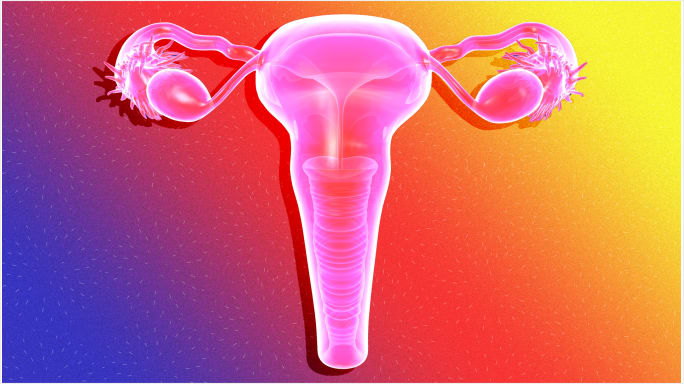Everything you need to know about the (rare) circumstance of getting pregnant while pregnant
Late-night Googling can be a dangerous rabbit hole. It starts with looking up one symptom and quickly descends into a full-blown hunt for the next horrific thing that will absolutely definitely happen to your body. For example, yesterday we found out that while carrying a surrogate pregnancy for a Chinese couple, California mom Jessica Allen became pregnant with her own biological child at the same time.
Yes, this can happen: Under certain — very rare — circumstances, you can get pregnant while you’re already pregnant. Given the fact that I am currently not pregnant — nor do I have plans to be anytime soon — I’m not sure how this even ended up on my radar, but here we are.
To get to the bottom of this (and so I’d stop scaring pregnant friends of mine with this fact), I investigated the old-fashioned way: I asked an actual doctor.
Can you actually get pregnant while pregnant?
In short, yes, but it’s very rare.
Dr. Gerardo Bustillo, an OB-GYN at Orange Coast Memorial Medical Center in Fountain Valley, California, started by explaining that the process I described is called “superfetation,” which refers to the formation of a second pregnancy during a different menstrual cycle while another pregnancy is already established in the uterus.
But wait, there’s more. Bustillo also described a process called “superfecundation,” which is the fertilization of two eggs during the same menstrual cycle from separate acts of sexual intercourse. So yes, it is technically possible for a person to be pregnant with twins conceived with two eggs from the same menstrual cycle but by two different males. That’s called “heteropaternal superfecundation,” and the resulting twins are genetically half-siblings since they only share the genes of the mother, he told me.
How does this work?
Sperm can live inside the female reproductive tract for four to five days, Bustillo noted, and the ovulated egg remains fertilizable for up to 48 hours. This means that the reproductive window may allow for fertilization of a second egg by the same or a different male partner.
How common is it?
We’re not 100 percent sure. Cases of superfecundation are difficult to confirm if the same male is responsible for both fertilizations, Bustillo explained, meaning that it may be more common than suspected.
Cases of heteropaternal superfecundation — where two separate eggs are fertilized by two separate males — have been documented, and although considered rare, may be more common than previously thought, he added.
“Interestingly, in one study on humans, the frequency of heteropaternal superfecundation was 2.4 percent among twins whose parents had been involved in paternity suits,” Bustillo said.
Superfetation, although common in some species of animals, is extremely rare in humans.
So how rare is it?
“There are fewer than 10 reported instances of superfetation in the medical literature since 1960, and in general, reports of superfetation have been treated with suspicion,” Bustillo said.
Does this mean pregnant women should still be using a barrier method birth control if they’re having sex while pregnant?
Although considered rare, it is potentially possible for a woman to conceive a second time in very early pregnancy.
But once an early pregnancy test is positive, the superfecundation will have already occurred, Bustillo explained. Because of this, using a barrier method once you already know that you’re pregnant will not decrease the rare risk of superfecundation.
Are there any additional risks associated with getting pregnant while already pregnant?
Any type of multiple gestation — whether that’s twins, triplets or beyond — carries significantly higher risks to the mother and fetuses than a singleton pregnancy, Bustillo said.
In the very rare case of superfetation, there’s an additional risk: that delivery of the full-term twin may also result in delivery of the second baby at the same time, which is therefore born prematurely. This can lead to challenges such as immature lung function and other serious issues in the baby born prematurely, he added.
Originally published on SheKnows
Cover image courtesy of Getty Images/Design: Michaela Early/SheKnows




comments